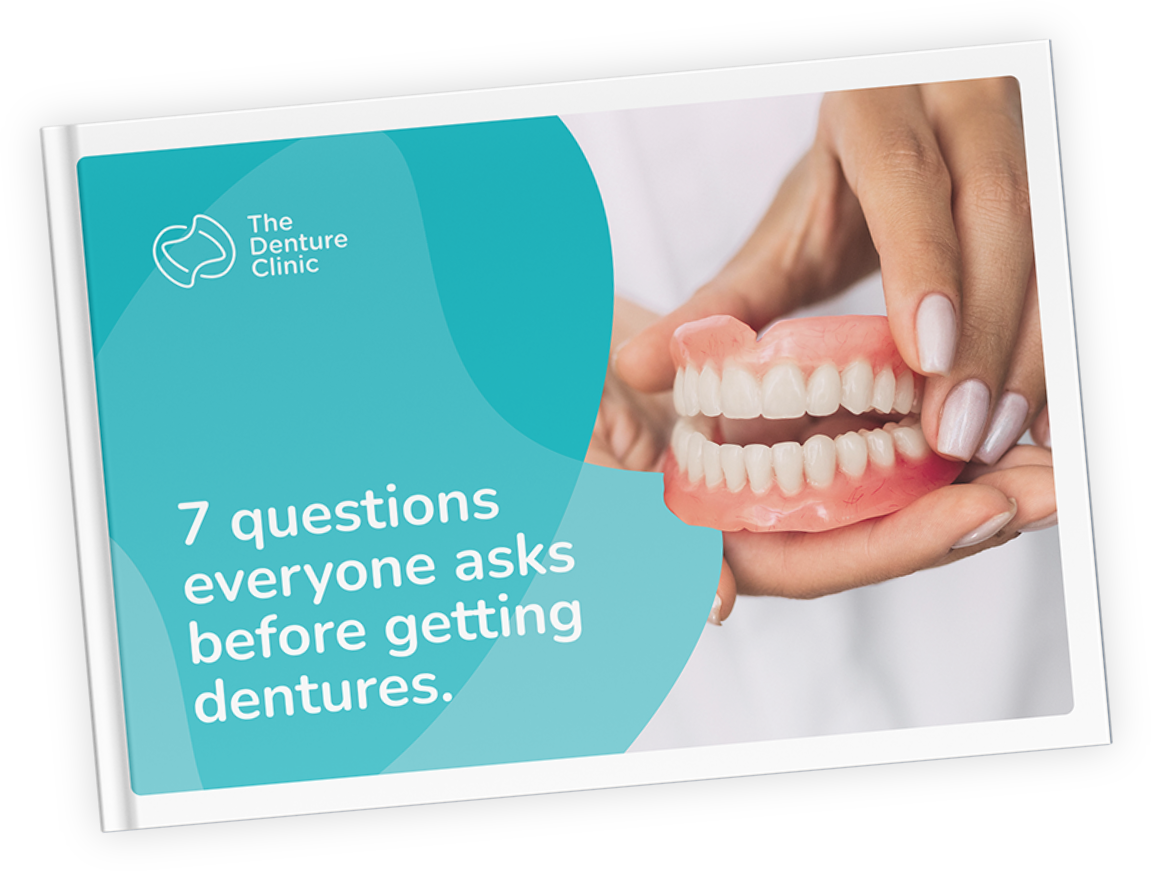Wearing dentures—especially partial dentures—can be a practical and functional solution for missing teeth. However, like any prosthetic, they’re not built to last indefinitely. Over time, the shape of your mouth may change, materials can wear down, and small issues can turn into persistent discomfort. While dentures might seem fine on the surface, subtle signs may indicate it’s time to consider an update. Understanding these signals is crucial for maintaining comfort and avoiding complications. In this blog, we’ll explore eight common signs that it could be time to visit a denture clinic in Canberra to discuss whether a new pair is the right step for you.

1. Discomfort When Chewing or Speaking
Even well-fitting partial dentures may stop performing as expected due to natural changes in the jawbone and oral tissues. Discomfort during basic daily functions like chewing or speaking could indicate that your dentures no longer align correctly with your mouth’s current structure.
- Partial dentures may shift during speech or eating, making articulation or digestion harder than usual.
- Pressure points can form under poorly aligned dentures, causing irritation and tenderness.
- Avoiding certain foods because of discomfort can signify that function has diminished.
These issues may gradually worsen over time, so early attention is advisable.
2. Visible Cracks, Wear, or Damage
Wear and tear are expected over the lifespan of any denture, but visible damage can affect its performance and safety. While some cracks or chips might appear minor, they could lead to broader structural issues.
- Thin cracks or small chips may harbour bacteria, making hygiene harder to maintain.
- Fractured clasps or attachments on partial dentures may reduce stability.
- Uneven biting surfaces from wear can affect how pressure is distributed in the mouth.
Promptly identifying and addressing visible damage may help avoid more complex problems in the future.
3. Persistent Bad Breath or Taste Changes
Bad breath and a lingering unpleasant taste could be linked to the condition of the dentures themselves. As materials degrade or micro-cracks form, bacteria may accumulate in areas that are hard to clean thoroughly.
- Bacteria trapped in fine surface cracks or porous materials may lead to odours.
- Partial dentures that no longer fit well can trap food particles more easily.
- A metallic or stale taste may result from older materials breaking down.
Maintaining a regular cleaning routine is important, but professional assessment may be beneficial if unpleasant tastes persist.
4. Changes in Facial Shape or Appearance
The human jaw naturally changes shape over time, particularly in areas where teeth are missing. This can affect the fit of dentures and may lead to changes in facial appearance.
- A sunken or sagging look around the cheeks or mouth may develop.
- Loose-fitting dentures might make facial movements feel unnatural.
- Smile lines or jaw posture may shift subtly due to declining support.
When dentures no longer complement the natural contours of the face, they may be due for reassessment.
5. Gum Soreness or Ulceration
While some mild irritation may occur initially with new dentures, ongoing gum soreness or ulcers could point to ill-fitting appliances. Even a small misalignment can lead to concentrated pressure that impacts soft tissue health.
- Persistent redness, swelling, or discomfort that continues despite attempts at adjustment may indicate an underlying issue with the fit or positioning of the denture.
- Small ulcers or irritated spots can develop from repeated rubbing, especially along the denture base or around clasps on partials.
- Sensitivity might become more pronounced when eating or brushing around the affected area, making daily activities uncomfortable.
- Changes in the shape or firmness of the oral tissues over time, due to natural resorption or another factor, can cause a once-comfortable denture to create new pressure points.
Monitoring for these signs can be a helpful part of maintaining oral comfort. If discomfort becomes routine, it might be time to assess the fit of your dentures.
6. Loose or Unstable Fit
Once secure dentures may begin to feel less stable. This can be subtle at first, but may become more apparent during everyday activities.
- Clicking, shifting, or movement during eating or speaking can affect confidence.
- Using adhesives more frequently may be a sign of a diminishing fit.
- Loose dentures may also increase the risk of rubbing or sores.
If retention has changed noticeably, whether a new set is more suitable than continuing with repeated adjustments is worth considering.
7. It’s Been Over Five Years
Although denture lifespans vary, five years is a commonly recommended benchmark for review. This doesn’t necessarily mean replacement is always needed, but it’s a sensible timeframe for assessing condition and fit.
- Materials used in partial dentures can gradually degrade through daily use, cleaning, and exposure to temperature changes in the mouth.
- Over time, natural changes in the gums and underlying bone may affect how the denture fits and functions, even if discomfort isn’t immediately noticeable.
- Subtle shifts in oral anatomy might impact bite alignment or cause pressure points that aren’t always visible but can lead to soreness.
- Periodic reviews may help identify surface wear, hairline cracks, or loosened components before they become more noticeable.
Keeping dentures under regular observation helps assess their suitability for your current oral environment, supporting everyday comfort and usability.
8. Something Just Feels Off
Sometimes, it’s not about any specific pain or visible issue—your dentures may just not feel quite right anymore. This subjective sense is important and shouldn’t be overlooked.
- A general feeling of fatigue in the jaw could suggest an improper bite.
- If chewing feels more difficult or food accumulates more often, the fit may have changed.
- Self-consciousness about appearance, even subtly, could indicate a change in aesthetics or comfort.
You know your own comfort better than anyone, and even slight changes should prompt consideration of whether a reline or a new set might help.
Visit Our Denture Clinic in Canberra for Support
If you’ve recognised one or more of the signs mentioned above, it may be appropriate to reassess your current dentures. At The Denture Clinic, we assist individuals using partial dentures by discussing available options based on their current needs. Our focus is on delivering information and support in a professional setting. We also offer access to affordable dentures, with attention to materials and design that suit a range of preferences. To learn more or to arrange a time to review your existing dentures, please get in touch via our contact page or give us a call.


